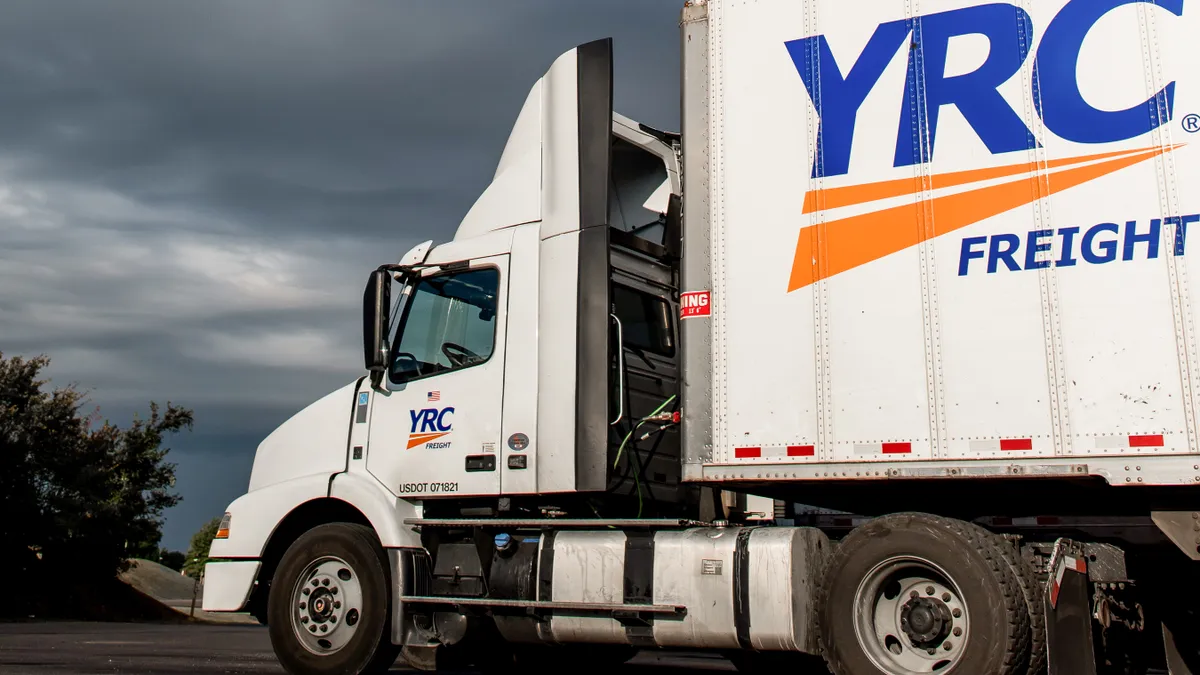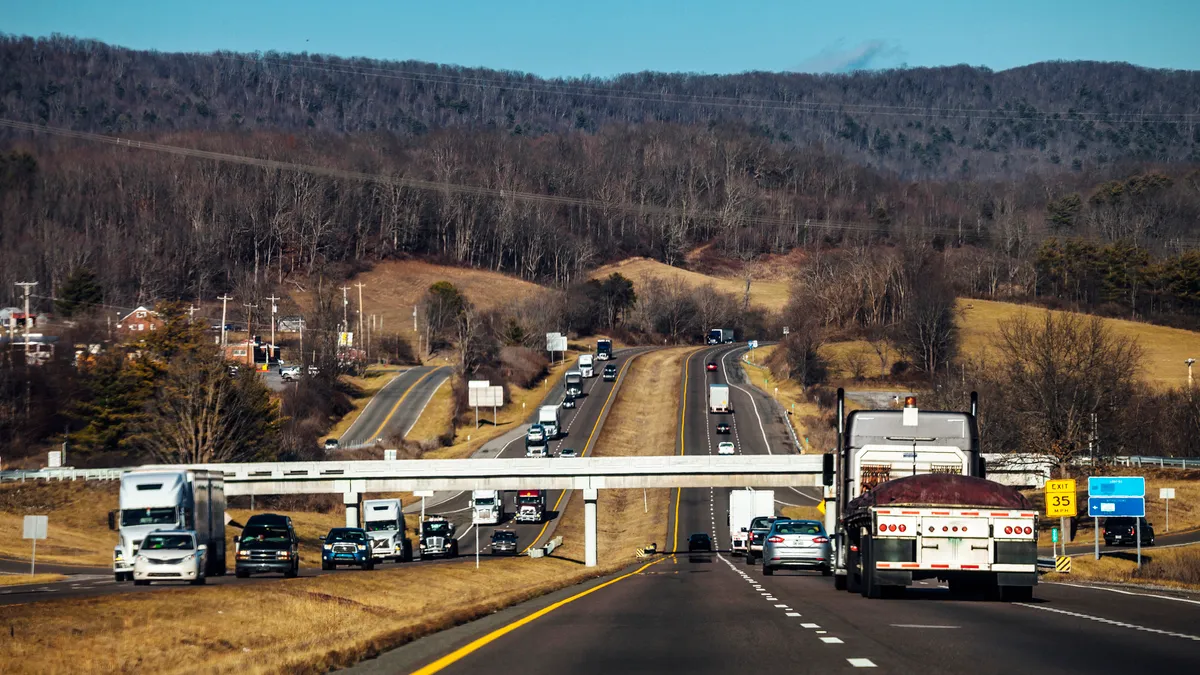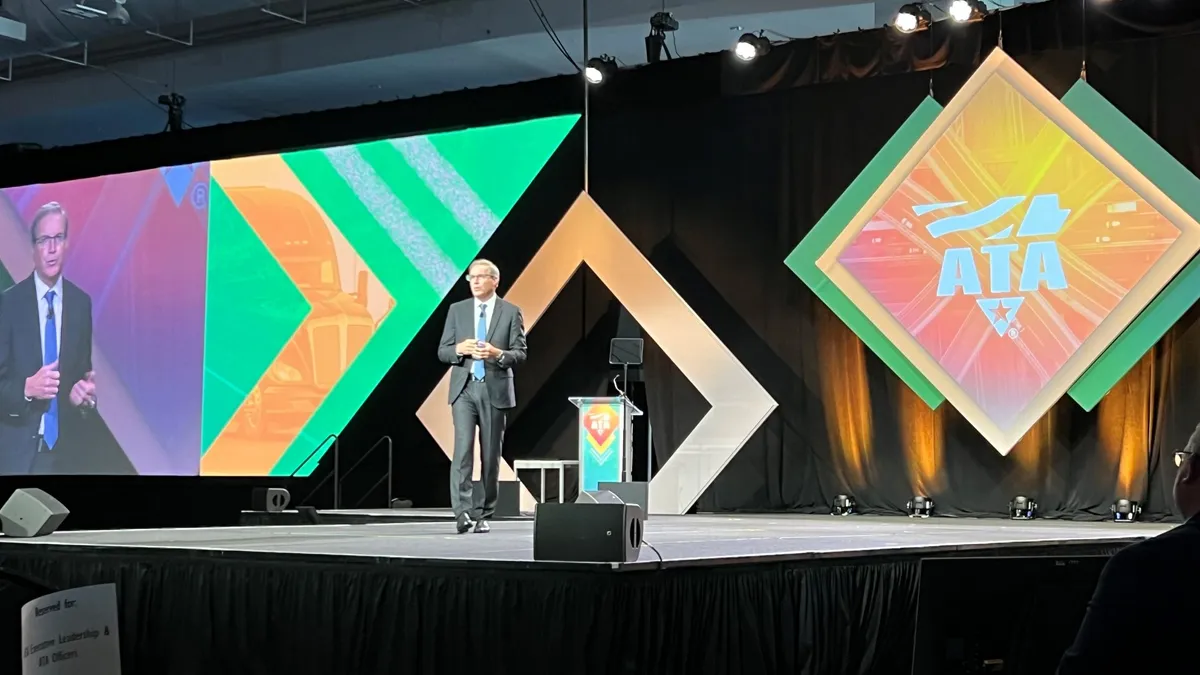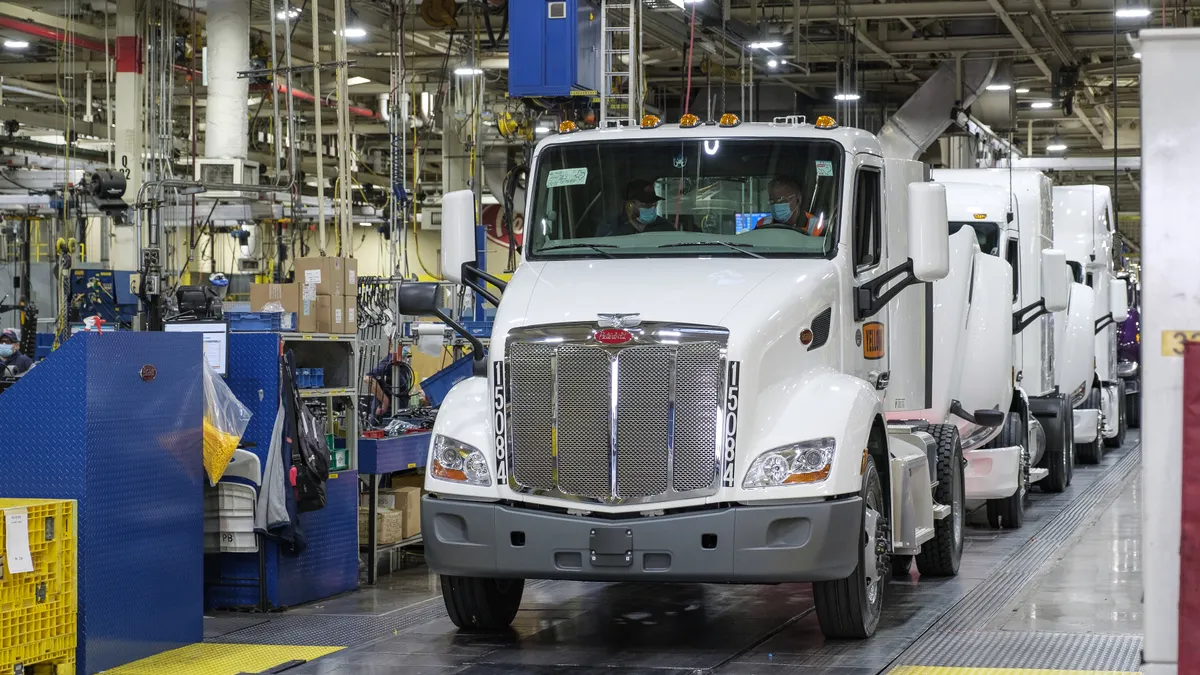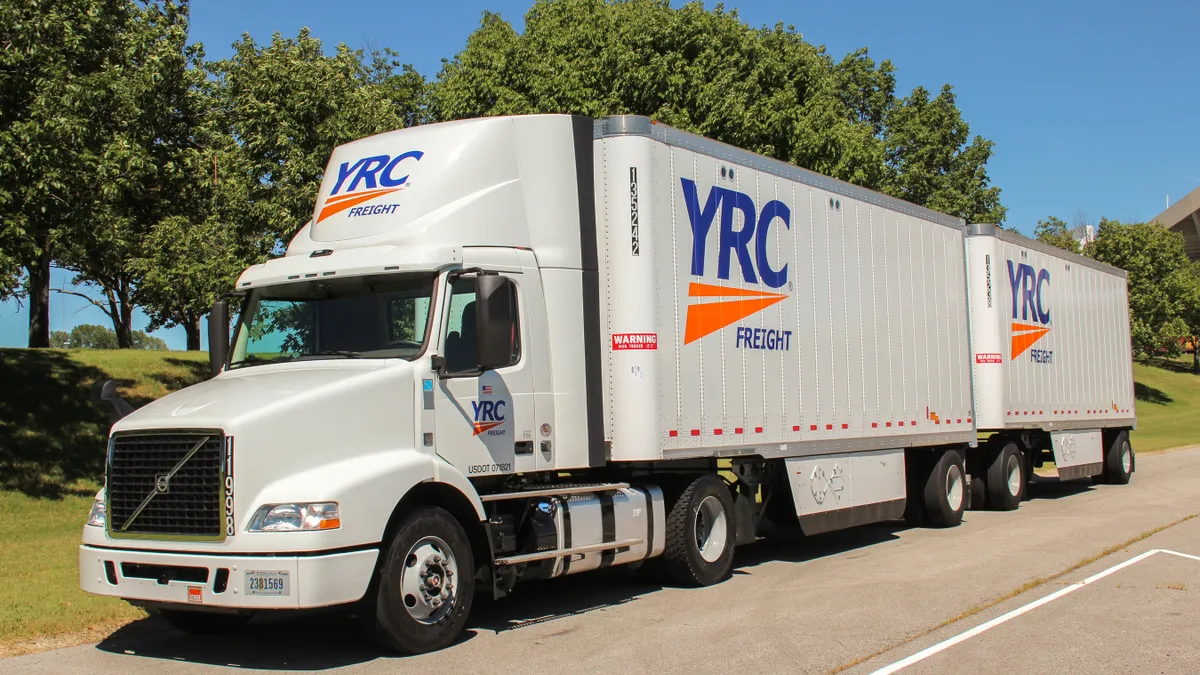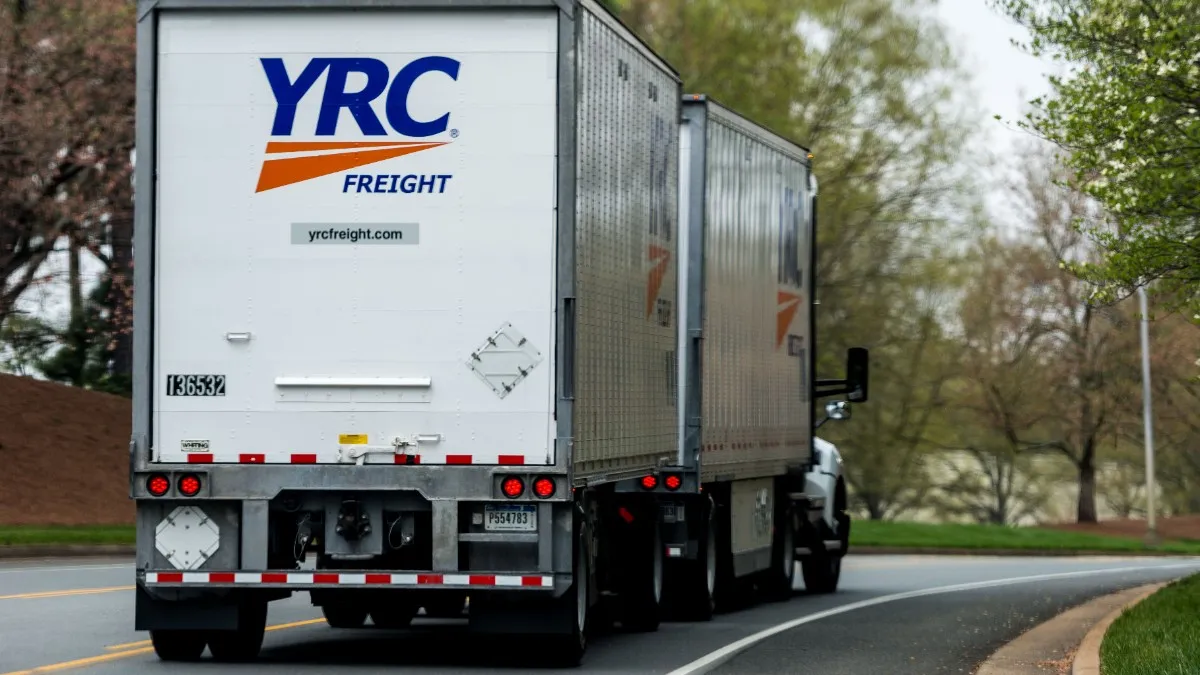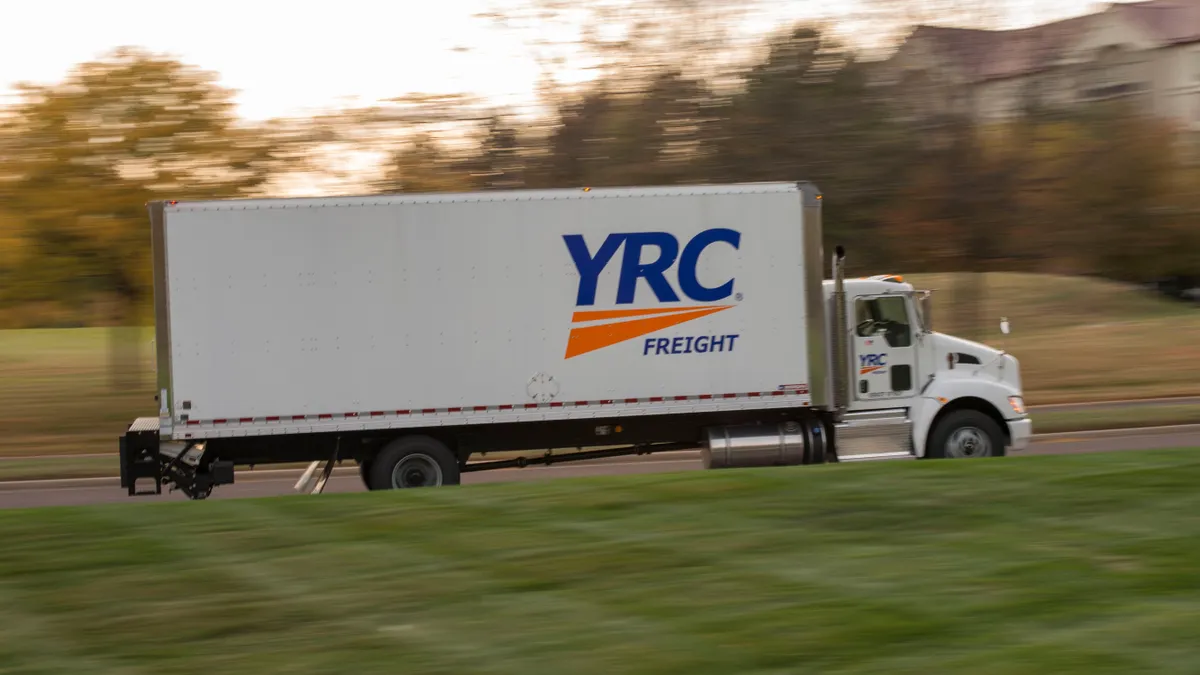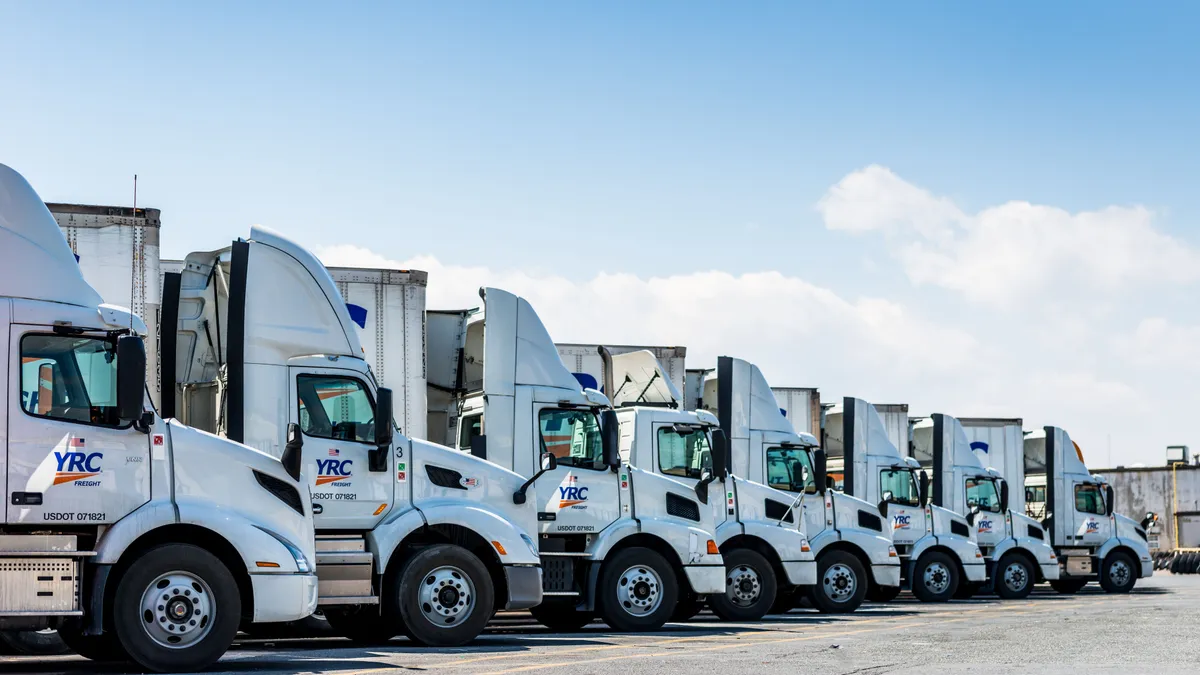When the industry heard from YRC Worldwide in May, it was perched on a cliff, possibly about to go over. The company did not take questions after its first-quarter earnings call on May 11, and that did not augur well for the LTL giant. At the time, YRC had about $833 million in debt, and it had lost $104 million in 2019, on revenues of $4.9 billion.
YRC officials also admitted the company would not make future EBITDA covenants that lenders expected. And the company had not paid Central States, the largest of its pension plans, since February, causing YRC and unions to negotiate eventual payments. The company was running on fumes and the fumes were thinning, one analyst concluded.
"If we don't get any good news in the next 30 days, we would not be surprised to see a wind-down of operations on or before July Fourth weekend," wrote David Ross, Stifel managing director for global transportation and logistics, in a prescient memo issued May 12.
But the industry learned in the next episode of earnings, during an Aug. 3 conference call, that YRC escaped the jaws of dissolution with a $700 million federal loan, made possible with congressional funding that came after the onset of COVID-19. The loan came from a $17 billion fund that Congress authorized within the CARES Act and was administered by the Treasury Department. In exchange, the Treasury took 30% stake in YRC in the form of common stock.
"The CARES Act empowered the administration to provide critical support to companies that are the last line of America’s supply chain," said Darren Hawkins, YRC CEO, speaking at the beginning of the earnings call for the second quarter.
"People just want this company to survive and keep people employed."

Jeffrey Kauffman
Analyst at Loop Capital
It's the latest survival story of the Kansas-based company, a storied carrier whose past escapes have perplexed analysts. But as Batman had Robin, YRC has usually turned to allies, such as Congress or unions, for help to avoid bankruptcy. And this time, the carrier surprised analysts who thought YRC might not make it, a sentiment more than a few analysts have had in the past two decades.
"I've been thinking that for 20 years and it never seems to happen," said Jeffrey Kauffman, an analyst for Loop Capital, which follows YRC. "People just want this company to survive and keep people employed."
In an email to Transport Dive, Hawkins said YRC has been through tough times before.
"The YRC family of companies has been continuously serving small and large businesses in the United States since 1924, through wars, the Great Depression, recessions, and natural disasters," said Hawkins. "While the pandemic has presented unique challenges for the North American supply chain, I am confident in our company and the resiliency and dedication of our 30,000 coast-to-coast freight professionals to persevere, just as we have done through past challenges."
Rooted in Yellow Cab
Hawkins' history touches on a unique trucking story that federal lawmakers may not have wanted to see end. YRC, as it is known, has history rooted in Yellow Cab Transit, one of the first Yellow cab and truck companies, with the color yellow a form of catchy marketing that started in Oklahoma City in 1924. For many years, its trailers, emblazoned with the "Yellow" logo, were a common sight on North American highways.
In those years, as Hawkins said, YRC saw many recessions and downturns. But in its modern era, ambitious growth came as Yellow acquired Roadway Corp. in 2003. After making such acquisitions, YRC was faced with the biggest downturn since WWII: the Great Recession of 2007-2009. To make matters worse, in 2009, LTL competitors FedEx Freight and Con-way Inc. (the latter now reborn as XPO) began to cut prices to eject YRC from the marketplace, once and for all, according to the New York Times.
YRC's fortunes looked bleak that year, as it carried a large debt load of $1.36 billion (at the end of 2008), and faced obligations to the Teamsters. According to a June 19, 2009, report by Reuters, R.W. Baird & Co analyst Jon Langenfeld downgraded YRC to "underperform."
"In the end we do not expect YRCW to be able to manage through the current crisis," Langenfeld said.
But it survived, with help from unions, which allowed delayed pension payments in 2009. That help came after YRC decided not to apply for a federal loan through the Troubled Asset Relief Program, known as TARP, which was designed for financial institutions.
YRC's size alone may have saved it from folding in 2009 and 2020. With 30,000 employees, it's possibly "too big to fail," ranking as the No. 6 North American for-hire carrier, according to the American Trucking Associations' media outlet, Transport Topics. YRC's revenues, $4.9 billion in 2019, and its subsidiaries — HNRY Logistics, New Penn, Reddaway, Holland — are considerable.
Kauffman said the industry and its stakeholders expected YRC to have a tight Q1, because industrial output slowed in 2019. And tales of the YRC being "on the brink" may be overstated, Kauffman said, admitting his could be a minority view in analyst circles.
One of the problems in 2009 was YRC had big debt, while failing to integrate acquisitions, similar problems that YRC has today with its numerous outlets. During the Q1 call, YRC CFO Jamie Pierson promised the company would integrate its carrier operations. Pierson said consolidation began in 2019, to bring independent operating companies together as one: "One company, one network and one management team all rolling in the same direction."
YRC also cut costs and terminals, from 600 to 350, according to Kauffman. But as the consolidation and cost-cutting came, industrial production slowed, Kauffman said, sharpened by a GM strike in the autumn. The slowdown hit LTL carriers in general and YRC in particular, he said.
Ross said in May he expected YRC's consolidation would serve the purpose of carrying every part as one, to profitability or to doom.
"It will either sink or float as one — don't expect any more talk of 'selling the regionals,' as was floated a decade ago during the last crisis," Ross wrote.
In with the new equipment
The company faced a problem left over from the previous recession: old equipment. As the LTL market softened, YRC officials were faced with the prospect of not replacing Class 8 tractors it had held for so long. That meant higher fuel and repair bills.
The company owns approximately 14,000 tractors. They are twice the age of the industry average, according to Amit Mehrotra, a Deutsche Bank analyst, speaking to the Times, which meant higher maintenance expenses. YRC was spending at least $10,000 per truck, per year, Kauffman said. And maintenance took the trucks off the road, costing more money.
Pierson and Hawkins told analysts the carrier will use $400 million from the Tranche B part of the loan to buy new trucks while employing the latest technology to avert accidents.
"This technology will be a real morale booster," said Kauffman.
Kauffman figures new trucks could get 2 or 3 miles more per gallon, saving tens of millions of dollars per year. And Hawkins said the maintenance costs of new tractors will be significantly lower, in the range of $1,000 to $2,000, annually. Plus, they will be on the road more often due to fewer breakdowns.
"Capacity has tightened in the LTL market and the whipsaw effect we are seeing with inventories and supply chain dynamics are creating a very fluid freight market."

Darren Hawkins
CEO, YRC
YRC supporters are betting that the trucking market, shown to be resilient during the pandemic, will grow stronger as the economy comes back.
Benjamin Hartford, a transportation analyst for R.W. Baird & Co., who does not cover YRC, said LTL pricing has remained stable, and the tightening truckload supply in the third quarter should have an impact that helps LTL on the margin.
YRC did better than expected in Q2, and it hopes the second half will show a surge in freight movement demand.
"Capacity has tightened in the LTL market and the whipsaw effect we are seeing with inventories and supply chain dynamics are creating a very fluid freight market," Hawkins said. "This is compounded by accelerating changes in market shifts to e-commerce. The opportunity for YRC is to remain focused on our enterprise transformation strategy that will lead to one company and five strong brands with a flexible network that can deliver freight solutions for our customers."


